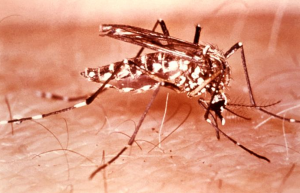As of July 28nd, a total of 25 state residents, after traveling to the Caribbean, have tested positive for another mosquito-borne virus chikungunya, according to the New Jersey Department of Health. The chikungunya virus is not contagious from person to person, is typically not life threatening and will likely resolve on its own. If a person tests positive for chikungunya and is then bitten by a mosquito, that mosquito may later spread the infection by biting another person. Nearly 400 travel-related cases have been reported nationwide this year.
The following counties have reported travel-related cases of chikungunya: Bergen-6; Burlington-1; Essex-2; Gloucester-2; Hudson-3; Middlesex-2; Monmouth-2; Morris-2; Passaic-3 and Union-2.
The first two chikungunya cases acquired in the United States were reported in Florida earlier this month. Infection with chikungunya virus is rarely fatal, but the joint pain can often be severe and debilitating. Other symptoms include high fever, headache, muscle pain, back pain and rash.
Symptoms appear on average three to seven days after being bitten by an infected mosquito. Most patients feel better after a few days or weeks, however, some people may develop long-term effects. Complications are more common in infants younger than a year old; those older than 65; and people with chronic conditions such as diabetes and hypertension. For more infectious disease news and information, visit and “like” the Infectious Disease News Facebook page


